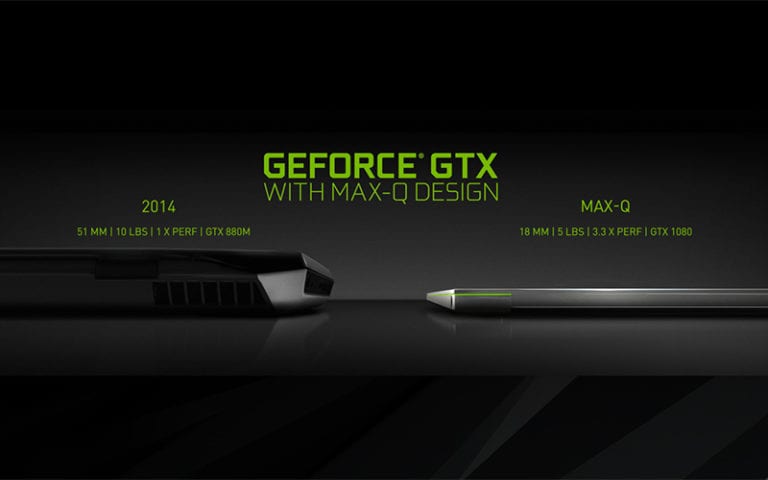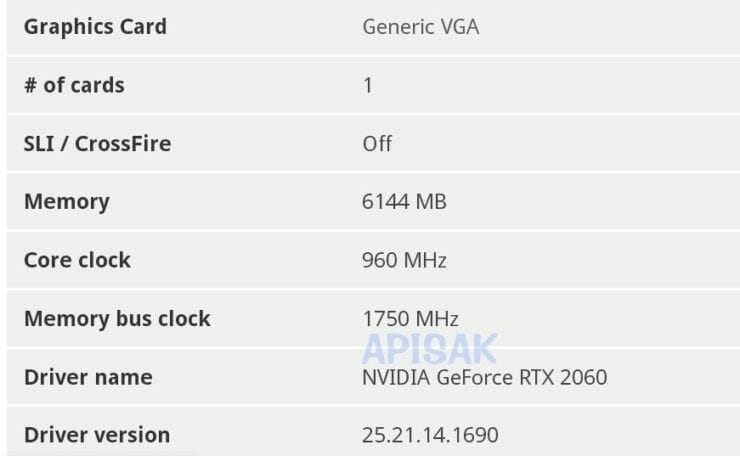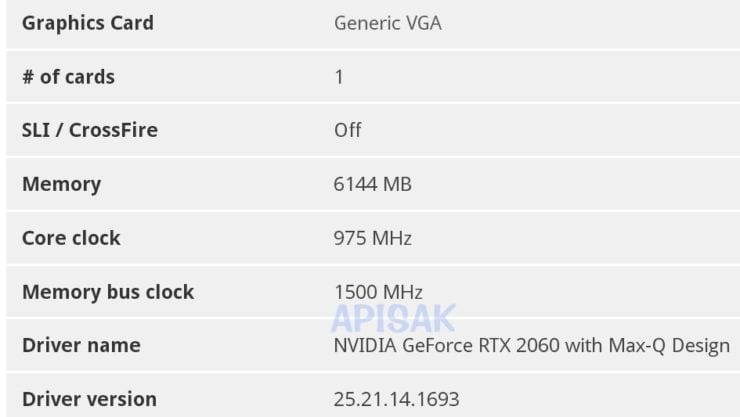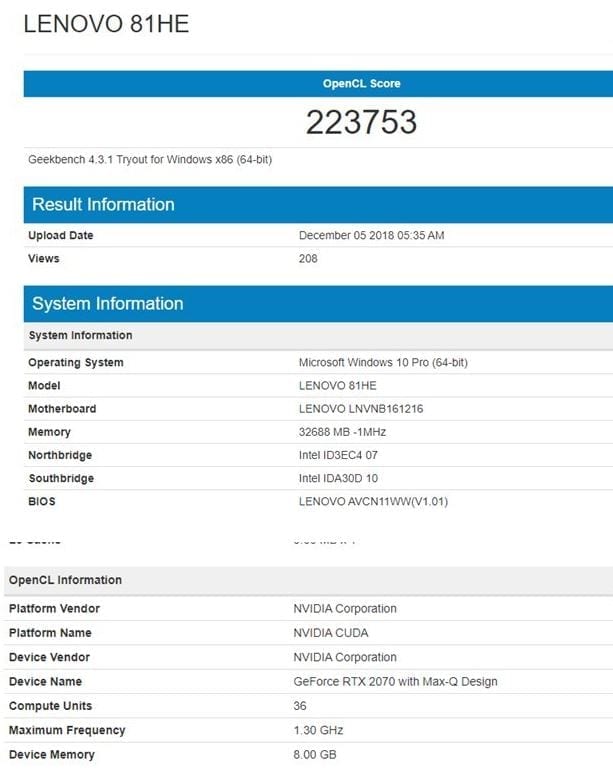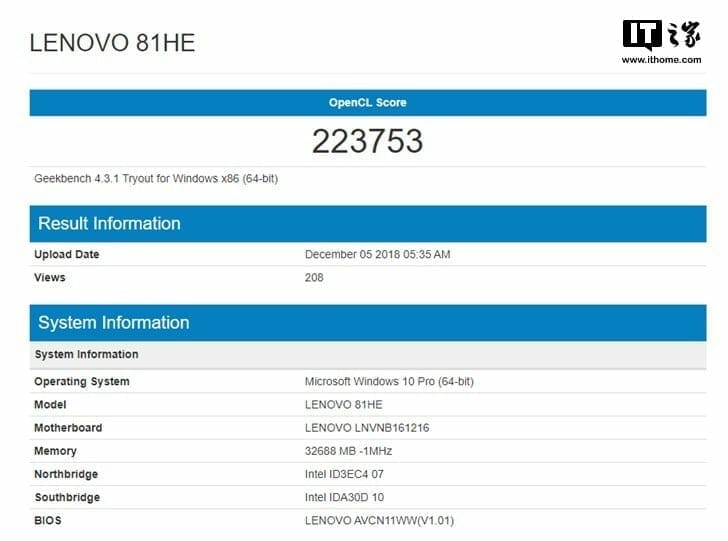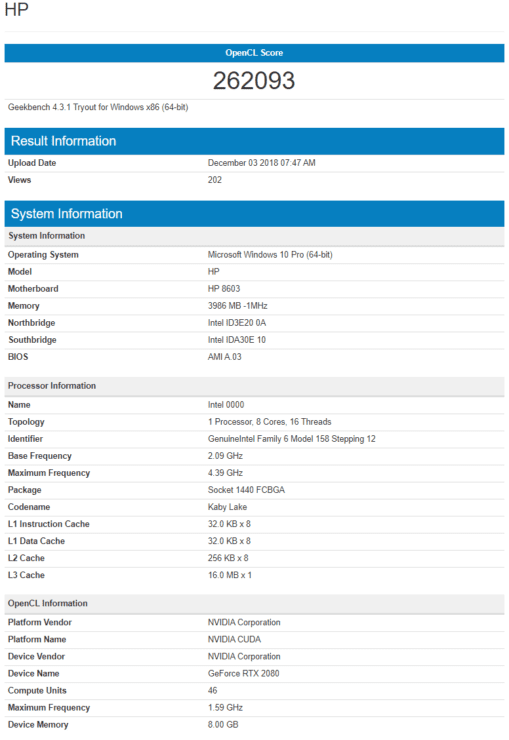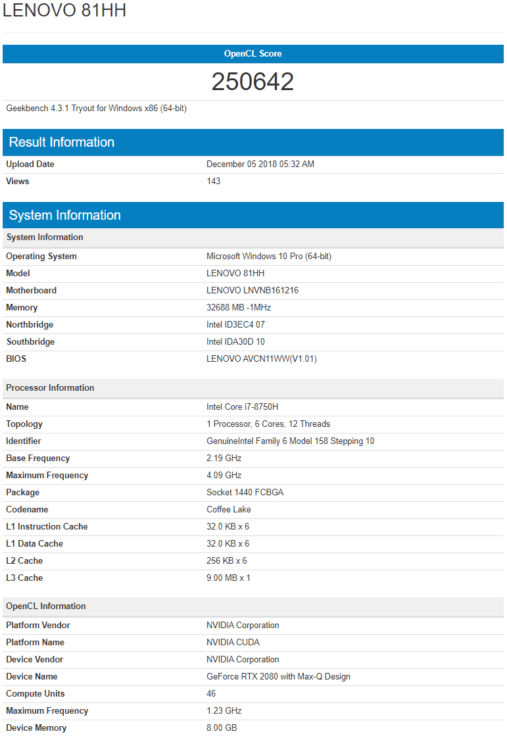According to several leaks and sources over the past week, it is becoming apparent that Nvidia will be releasing Laptop Geforce RTX Cards. So far, we have only seen the Nvidia RTX line of GPUs as desktop cards but from the looks of things, it seems like Nvidia will be coming out with Max-Q version of its turing based GPUs.
I recently covered two leaks that showed Geekbench scores of Lenovo and Asus Laptops that were running an RTX 2070 and RTX 2080TI GPUs respectively. Now we know that Nvidia is planning to branch out these cards through its Max-Q design which is specially meant for Mobile platforms such as notebooks and laptops.
The word around the internet is that these new RTX mobility cards will be unveiled at CES 2019. Many laptop and notebook OEMs are expected to debut their latest products featuring the aforementioned cards. On top of the previously leaked RTX 2070 and RTX 2080TI mobility cards, there is a new leak which suggests that an RTX 2060 mobility GPU will also be making its debut in the coming months.
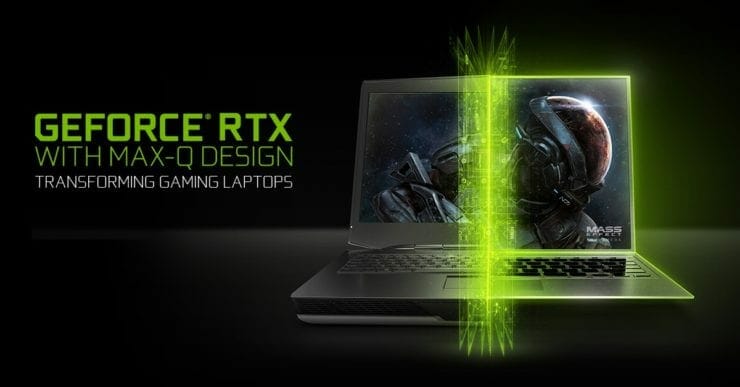
Following are all the rumored RTX cards that are to be transitioned into their Mobile variants via, either, Nvidia Max-Q or Mobility technology.
- NVIDIA GeForce RTX 2080 Ti Mobility
- NVIDIA GeForce RTX 2080 Mobility
- NVIDIA GeForce RTX 2080 Max-Q
- NVIDIA GeForce RTX 2070 Max-Q
- NVIDIA GeForce RTX 2060 Max-Q
- NVIDIA GeForce RTX 2060 Mobility
NVIDIA GeForce RTX 2060 Mobility and Max-Q
Thanks to APISAK we have specifications for all the different GPUs listed above. Starting with RTX 2060, there are two variants that have leaked online. The 3DMark benchmark leaks of the two cards have revealed interesting specs.
The specs for the two cards seem to identical except for Core Clock and Memory bus clock. The non Q-Max version has a 960 MHz Core clock which is only 15 less than the Q-Max version, however, the memory clock is significantly higher on the former at 1750 MHz which is 250MHz higher than the Max-Q variant. The VRam is identical for both the cards at 6GB.
The scores for the RTX 2060 cards aren’t explicitly mentioned in the leaks but it is believed that the Mobility version of the card will score 19000 if put to the 3dMark11 test. This will make it slightly slower than the GTX 1070 Mobility version as it has scored 22575 on the same test.
NVIDIA GeForce RTX 2070 Max-Q
The leaks have also shown the specs of an RTX 2070 Max-Q GPU. However, there have been no sightings of Mobility version of the same RTX card. The Max-Q version features 2304 CUDA cores and a clock speed of 1300 MHz. Moreover, it has 8 GB of GDDR6 memory.
Following is the leak that I covered separately a few days ago. These screenshots show the specs and OpenCL score of the RTX 2070 Max-Q card installed in a Lenovo 81HE laptop.
NVIDIA GeForce RTX 2080 Mobility and Max-Q Variants
Coming to the RTX 2080, we have leaked specs regarding both variants. Both variants feature 2944 CUDA cores and 8 GB of GDDR6 memory. The Mobility variant of the card is clocked at 1590 MHz and the Max-Q variant is clocked at 1230 MHz. Considering the differences we saw between the 2060 Mobility and Max-Q versions, these appear to be quite significant.
NVIDIA GeForce RTX 2080TI Mobility
Coming to the absolute monstrosity that is the RTX 2080TI. This GPU was spotted installed in an ASUS Zephyrus M GM501GS notebook.
The OpenCL score for this laptop is 280486. According to the specs cited in the screenshot, this RTX 2080TI has 11GB VRAM, 68 Compute Units and Max frequency of 1.54 GHz.
As for the remaining hardware on this laptop, it is running Win 10 64 bit with a RAM of 16GB. The processor is a 6-core 12-thread Intel Core i7-8750H processor same as the Lenovo 81HE.
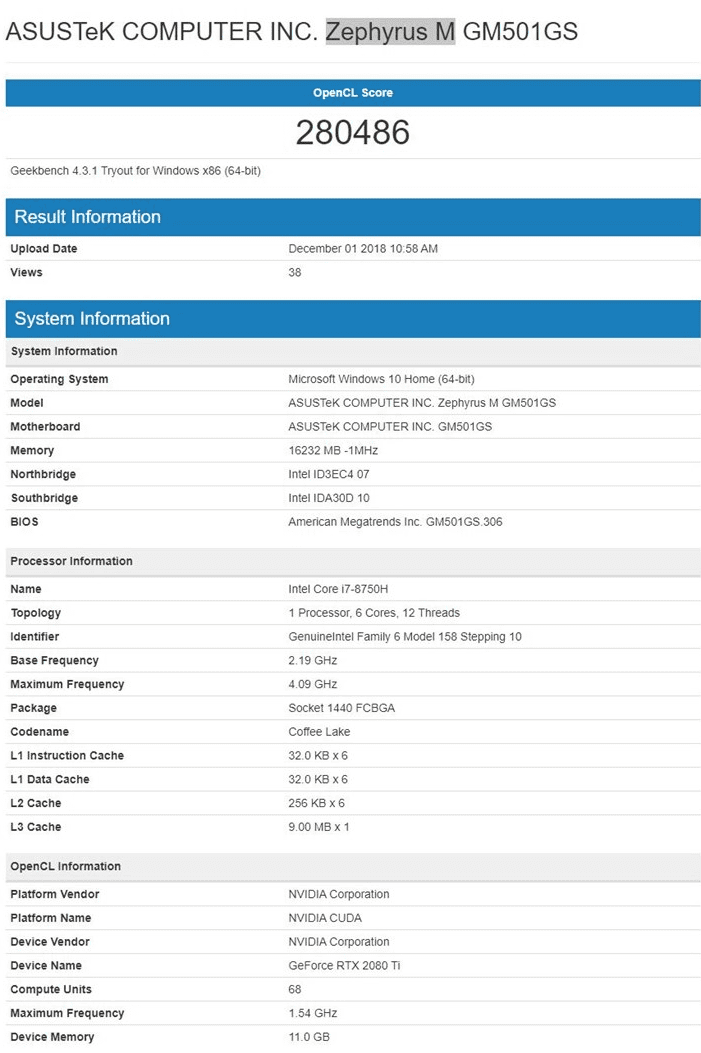
The thing here to note is that the RTX 2080TI is very similar to its Desktop counterpart in terms of specs. This, however, begs the question as to how Asus would manage to install this card into a laptop without making significant compromises to the clock and memory speeds. If not then we are looking at something closer to Acer Predator 21 X size wise. granted that the Acer Predator 21 X does have 2×1080 running in SLI, even then the size of the Asus laptop is more likely to be close to Acer Predator than, say, Razer Blade.
Let us know in the comments what you have to say about Laptop Geforce RTX Cards.

